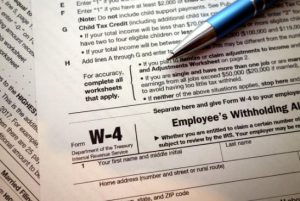Tax Season is here and so is the increase in scammers pretending to be Internal Revenue Service (IRS) agents or representatives.
Thousands of people have been targeted and far too many have become victims of personal identity theft. Quite often, scammers use sophisticated telephone, email and in-person tactics to impersonate the IRS to steal their targets’ information. And sadly, all too often people don’t even realize they’ve been scammed until it’s too late!
So, what can you do to keep yourself and your loved ones from falling for an IRS scam? Following are a few pointers to help keep you safe:
The IRS NEVER initiates contact by telephone. They use regular mail delivered by the US Postal Service to contact taxpayers first. There are a few unusual circumstances where the IRS may call or come to a home or business, but taxpayers are generally sent a letter or notice before any other type of contact is initiated.
The IRS NEVER initiates contact with taxpayers by email to request personal or financial email.
The legitimate IRS website is IRS.gov. All other deviations (IRS.com, IRS.net, IRS.org) are scammers out to defraud you. Never open, reply or click on any of these links if you receive them.
Scammers claiming to be the IRS tend to be aggressive and demanding. They use fake names and provide fake identification numbers. They threaten to bring in law enforcement agencies to arrest you if don’t pay immediately, and they use other scare tactics, saying they’ll revoke licenses, social security numbers and immigration status. (NOTE: The IRS and the Taxpayer Bill of Rights guarantee you the right to question and appeal what they claim you owe.)
The IRS NEVER demands immediate tax payment or asks for specific types of payment (gift cards, prepaid debit cards, wire transfers). The IRS offers a variety of payment options.
Never offer personal information over the phone unless you’re positive you’re speaking with a reputable, known caller. When you receive a suspicious phone call about your tax debt, always ask for the caller’s name and number and tell them you’ll call them back.
What to do when you or someone you know falls victim to an IRS Imposter:
- Report all scams by calling the Treasury Inspector for Tax Administration at 1-800-366-4484.
- Forward suspicious emails claiming to be the IRS to phishing@irs.gov
- Go to FTC.gov and let the Federal Trade Commission know by using the FTC Complaint Assistant. Be sure to add “IRS Telephone Scam” in the notes.
Kim Robson
Product Manager
krobson@marathonstaffing.com



